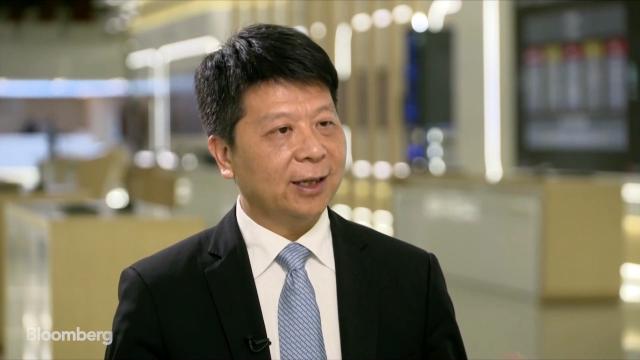Huawei just reported over $US100 billion ($141 billion) in annual sales for the first time ever in 2018. And rotating chairman Guo Ping took a victory lap in front of reporters yesterday with some particularly harsh words for the American government.
“The US government has a loser’s attitude. They want to smear Huawei because they can’t compete with us,” Guo said according to The Financial Times. “The US has abandoned all table manners.”
Huawei saw net profits rise 25 per cent in 2018 over the previous year and is the largest seller of telecom equipment in the world. Guo insisted that Huawei has no technological back doors despite concerns raised by countries such as the United States and Australia. Both countries have banned Huawei from competing for 5G infrastructure contracts over national security concerns.
Huawei has close ties to the Chinese government, but Guo says that it would be business “suicide” for the tech giant to compromise its security on behalf of China. Guo told reporters that Huawei has “no intention of committing suicide”.
“We have over 90,000 employee-shareholders,” Guo told Bloomberg’s Tom Mackenzie in a sit-down interview published on YouTube yesterday. “Any bad actions from us would damage employee-shareholders and go against management’s interests.
“Huawei would never do that,” Guo continued. “We would never go against our basic business principles.”
The US Justice Department announced in January that the American government is suing Huawei for fraud, obstruction of justice and theft of trade secrets. Huawei countered with its own lawsuit earlier this month over the ban on Huawei products being used by US federal employees.
Arguably the first shot that was taken to escalate this New Cold War spat occurred in December 2018 when Canadian officials arrested Huawei’s chief financial officer, Meng Wanzhou, who also happens to be the daughter of Huawei’s billionaire founder Ren Zhengfei. Meng was arrested at the request of American officials and faces extradition to the US for violating sanctions against Iran.
China has charged two Canadian citizens with spying, Michael Kovrig and Michael Spavo, in the wake of Meng’s arrest.
The arrests have helped fan tensions between nations aligned with the Five Eyes spying network (such as the US, UK and Canada) and those on the other side of the Iron Firewall (such as China, Russia and North Korea). The US has even been threatening other allies such as Germany, saying that if they use Huawei technology the US will stop sharing sensitive intelligence with the country.
Huawei, which sold over 200 million phones globally in 2018, is poised to become the largest smartphone seller in the world by 2020, possibly surpassing Samsung through strong sales growth in regions such as Europe, the Middle East and Africa.
Unlike the Five Eyes countries, many countries in Africa haven’t been concerned with New Cold War fights and instead have welcomed products that are less expensive than Apple’s iPhone. The Chinese government is also investing heavily in infrastructure in Africa through its ambitious Belt and Road Initiative.
Guo caused a stir at the Mobile World Congress 2019 in Spain back in February when he confronted criticisms against his company in the most aggressive tactic to date.
“Prism, prism on the wall, who’s the most trustworthy of them all?” Guo said as a logo for the National Security Agency’s PRISM program was displayed behind him. “It’s an important question. And if you don’t understand that, you can go ask Edward Snowden.”
NSA whistleblower Edward Snowden revealed the NSA’s PRISM program in June of 2013, which was just one of many tools being used to suck up intelligence from all around the world.
“The irony is that the US CLOUD Act allows their governmental entities to access data across borders,” Guo said, pointing out that American tech companies are just as aligned with their own government’s national security interests as anyone else in the world.
Guo made the pitch even more explicit in an op-ed for The Financial Times, explaining that “the more Huawei gear is installed in the world’s telecommunications networks, the harder it becomes for the NSA to ‘collect it all’.”
Pick your poison, I guess. No tech company is really guaranteeing that it’s free of spies. The only real choice is which side you want spying on you.
[Financial Times and CNBC]
